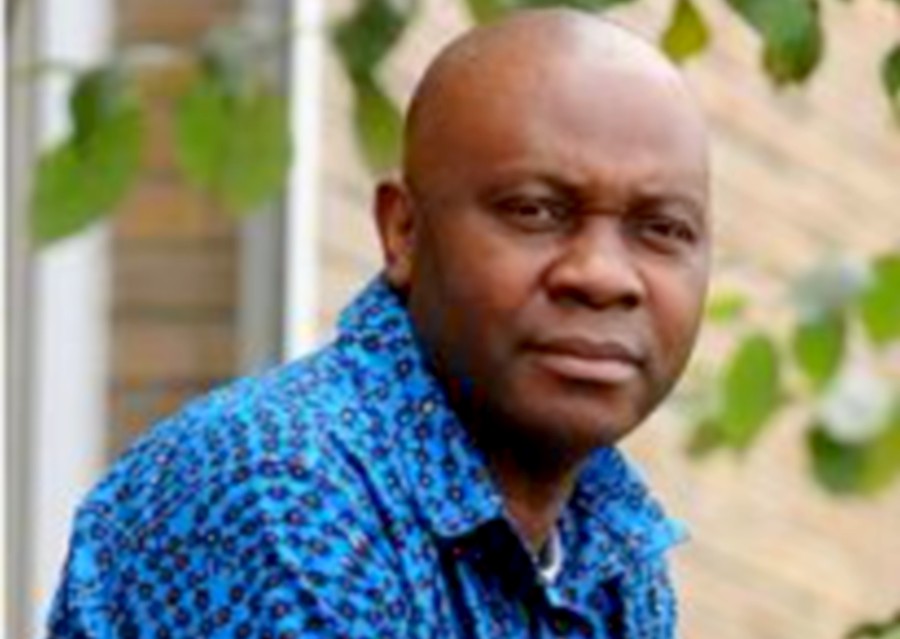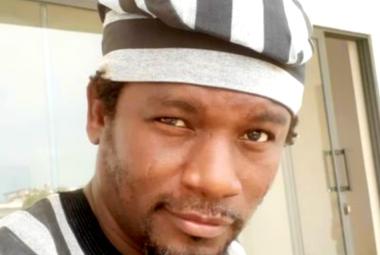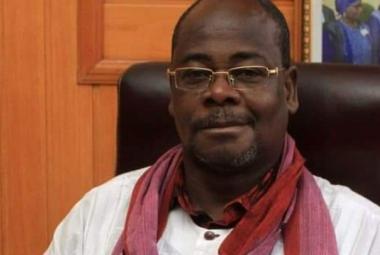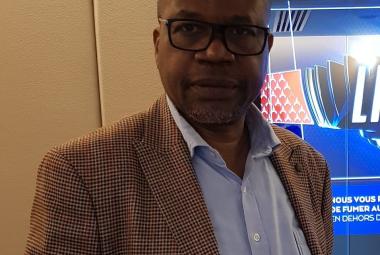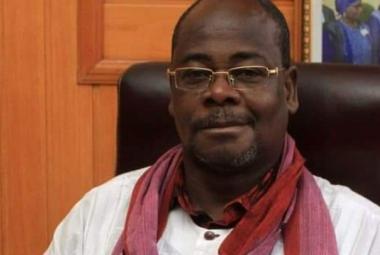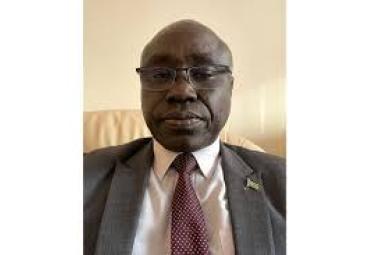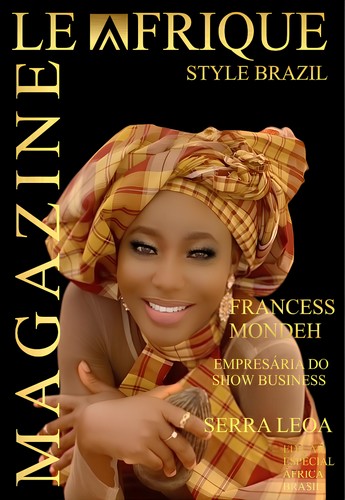From October 19 to 20, 2022, CARES (Centre for Afro-European and Religions Studies) organized an inaugural symposium on Afropeanity. This concept, as the organizers of the conference pointed out, already has a history. It originated in artistic circles towards the end of the 1980s. It was carried by the playwrights of African descent Koffi Kwahulé and Kossi Efoui. It is then assumed in the musical world with the New York label Luaka Bop of David Byrne. This produced the first album of the Belgian group Zap Mama entitled Adventures in Afropea in which the artists of Congolese origin Marie and Anita Daulne call themselves Afropeans. Following them, other promoters of Afropeanity developed an Afropean discourse and thus contributed to the construction of this new terminology. This is the case of the writer and essayist Leonora Miano whose following synthesis calls out: “Afropian is a person of sub-Saharan descent, born or raised in Europe. […] Those concerned are above all custodians of a European experience [but also of an African cultural heritage that they do not wish to dismiss, they only know life in a minority situation, the existence of a restive space to recognize themselves in them.
However, the floating nature of the concept of “Afropaeanity” is an invitation to refine its contours and to engage in the construction of the Afropean condition. This is how the task of the Center for Afropean Studies and the Sciences of Religions (CARES) takes shape. Under the aegis of this research center attached to the University Faculty of Protestant Theology of Brussels (FUTP), a university certificate is organized with a view to offering the tools necessary for understanding Afropeanity and building the double African and European consciousness.
The life of Afropeans is not easy. For purely illustrative purposes, it is worth remembering a survey carried out in 2018 by the European Union which revealed that one in three Europeans of African origin say they have been a victim of racism. There is no doubt that Afropeans are concerned. Very recently, a lively controversy erupted in the French National Assembly over racist remarks about an Afropean deputy who spoke about migrants. No need to lengthen the list of these facts which are legion. He wonders if it is enough to proclaim his Afropeanity. Could the concept of Negritude contribute to the construction of an Afropeanity capable of assuming and asserting itself in an Afro-European world?
What negritude today?
Before the birth of French and English, we know the use of the expression Nigra sum taken from the Song of Songs. And Nigra et formosa is a title of Isis. In the 19th century, certain Egyptologists rendered the name of Kemet or Ancient Egypt by Nigritie or Niger. Then came the time of colonization. We began to get rid of the Latin translations. The former Nigritie or Niger bore exclusively the name of Egypt. In view of the above, Negro turns out to be a word that existed before the existence or historical emergence of Belgians, French, English, Spanish, Portuguese, Germans, etc. The term is neutral and positive in relation to “Black” or “Black” (Africamaat 2005). Should the Negritude related to it be a fixed reality, of an essentialist nature, incapable of contributing to the rebirth of Africa? Some think so.
In addition, we measure the semantic stake of the term KAME/KMT/NEGRE. Properly understood, Negritude revisited can only flow from it. We believe it is useful to ask ourselves about his contribution to the project of building Afropean identity.
Birth of Negritude
Black people in America were the forerunners of the African claim and recovery movements. Du Bois, Langston Hughes… are brand names that cannot be forgotten. Their cry of claim had repercussions in the French-speaking diaspora (René Maran, Price-Mars), in the West Indies and even in the Latin Quarter in France (think of A. Césaire, Léon Damas, L.S. Senghor).
Since the Black students of Paris cultivated the concern to return blackness and to recover the memory of the African past, they arrived there not only thanks to the Black-American writings, but also thanks to ethnologists such as Frobenius, Van der Kerken, Van Overbergh… and European artists. Without forgetting the studies carried out by some Africans who have shown a great national leap forward.
A few journals gave weight to the ideas developed by Black students in Paris. The Légitime defense manifesto appeared in June 1932. It was the work of a few West Indian students. This magazine defended the West Indian personality trampled underfoot by 300 years of slavery and colonization. It also stigmatized in extremely harsh terms the pale imitation of French Parnassus by Antillean literature constituted by a minority of assimilated bourgeois.
L’Etudiant Noir (The Black Student (1934-1940) claimed – to the detriment of the policy of assimilation – “the creative freedom of the Negro outside of any Western imitation”. To free themselves from the shackles of this assimilation experienced by the Black, it was necessary to return to African sources. Three great personalities dominated the group of L'Etudiant Noir: A. Césaire (Martinique), L. Damas (Guyanne), L.S. Senghor (Senegal), surrounded by Léonard Sainville, Aristide Maugée, Birago Diop, Ousmane Soce, the Achille brothers .
The magazine Présence Africaine (Paris-Dakar, 1947). After the dislocation, the Présence Africaine group reformed around Alioune Diop (Senegal), Paul Niger and Guy Tirolien (Guadeloupe), Bernard Dadié (Ivory Coast), Apithy and Behanzin (Benin, ex Dahomey) and Rabemananjara (Madagascar). The first issue of this review appeared in Dakar as well as in Paris. A. Gide, J.-P. Sartre, E. Mounier, M. Leiris and G. Balandier are the French intellectuals who, with Senghor, Césaire, Wright and Hazoumé, patronized Présence Africaine.
In order to promote African cultural buildings, men of letters sang the beauty of mother Africa. Historians affirmed the importance of a people's past. This was the case of Ki-Zerbo and C.A. Diop, whose theses on the peopling of the earth are extremely topical. Philosophers and theologians, in turn, entered into the same dance to the point of demystifying the myth of philosophical and theological universalism widespread in the West.
What must be added, in line with Amilcar Cabral, is that Negritude did not directly concern the majority of the people. “…the problem of a 'return to the sources' or of a 'cultural recognition' does not arise and cannot arise for the popular masses: because they are bearers of cultures, they are the source of culture and, at the same time, the only entity truly capable of preserving and creating culture, of making history... It is therefore necessary, at least in Africa, to distinguish between the situation of the popular masses who preserve their culture, and that of the categories social more or less assimilated, uprooted, and culturally alienated.
We have seen it: some Africans, cut off from their traditional society, are led to despise their culture to adopt the European model and become “Black-skinned French”, to use Senghor’s expression.
But voices were raised, at some point, to propose another configuration of the world, that of a return to Africa. This was Césaire’s great black cry: “I will push the great black cry so stiffly, A. Césaire will exclaim one day, that the foundations of the world will be shaken”. It was a movement and a thought of emancipation, of a 'great awakening of the consciousness of one's human and cultural identity': 'négritude' or 'African Personality'.
With regard to the movement of negritude, it must be repeated that it was born outside Africa in the 'Latin Quarter' in Paris in the midst of Black students from the French colonies and the Antilles and Haiti. What contributes to the advent of Negro consciousness is in particular the disenchantment of assimilated people in the face of the contradictions of Europe. At a time when the myth of Western civilization was crumbling, Black people had to be able to conquer the power of remembering instead of repeating the song of their “Ancestors the Gauls”.
It is up to Aimé Césaire to have coined the term Negritude in 1935 in a publication of the magazine of Martinican students L'Etudiant noir. What concerns him is the claim of a Black identity and its culture. Césaire would use this concept again in 1939 when he first published Cahier d'un retour au pays natal.
The tenors of Negritude propose to take up the cultural challenge, to fight for emancipation and to dialogue with other cultures. It will suffice to identify Bimwenyi's remarks on the cultural challenge to give us a sufficient account of the semantic scope of Cesairian negritude at the time of homage to the fundamental Negro who went to meet his ancestors.
Take up the “cultural challenge”: it is about affirming and rehabilitating the cultural identity, the specific personality of the Black people. In this perspective, A. Césaire defines Negritude as follows: it is “the simple recognition of the fact of being Black, and the acceptance of this fact, of our destiny as Blacks, of our history and of our culture”. Later, Césaire would redefine negritude in three words: identity, fidelity, solidarity.
Césaire does not like to see Negroes blush at their being Negro Senghor considers one's own identity as "the set of cultural values of the Black world". The Negroes decide to assume the Black skin and the worship of the ancestors which are the object of a “contempt” and to recharge with a new meaning the terms of cultural aggression.
Reading Aimé Césaire makes you think about the concept of Negritude, the lucid revolt it conceals and the vision of the future it reflects. When he returns to Martinique, Césaire becomes aware of the inequality suffered by Blacks. The destiny of his people and his race led him to assume his Negritude, to reflect on the demands of revolutionary action and of a new future. Negritude appears here as an operation of semantic detoxification, deconstruction and constitution of a new place of intelligibility of the relationship to oneself, to others and to the world. Poets, historians, philosophers, theologians, devote themselves to this enterprise of deconstruction and constitution. But what raises questions for Bimwenyi is the moment of the comparative and demanding “also” of a good number of African intellectuals: “we also have a philosophy”; ‘we also have a science’; ‘we also have a culture’, etc.
Prof Kalamba Nsapo
Research Director at INADEP
University Faculty of Protestant Theology of Brussels
CARES Research Center
*This article has been translated from French into English by Marcus Boni Teiga
To be continued…



